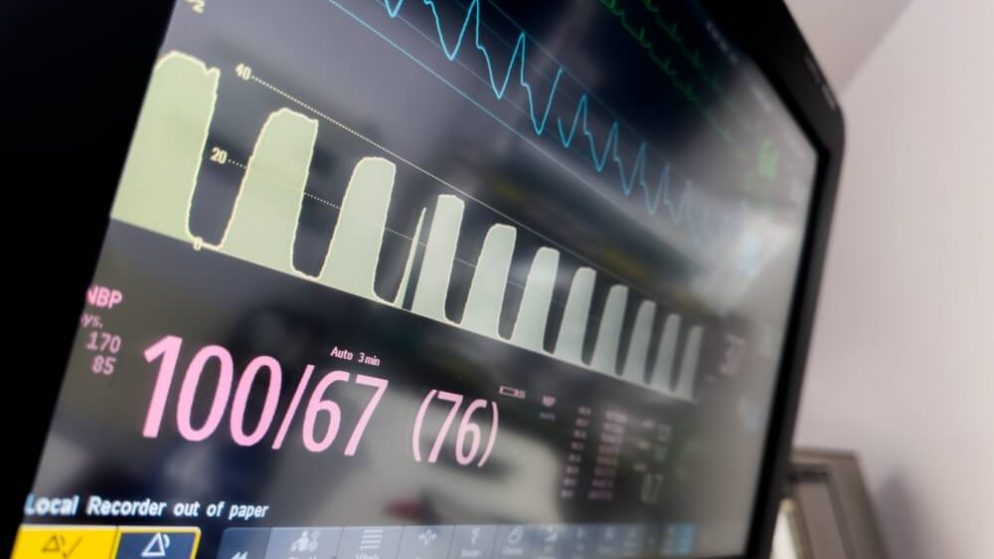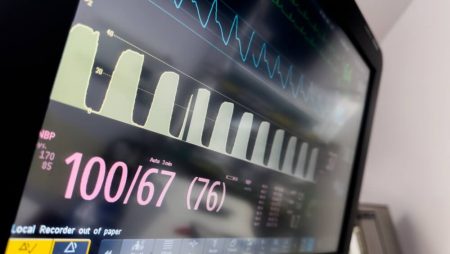



Get new exclusive access to healthcare business reports & breaking news




Royal Philips, a global leader in health technology, announced April 4th a strategic partnership to integrate smartQare’s advanced solution, viQtor, with Philips’ world-leading clinical patient monitoring platforms.
Wearable biosensors backed by industry-leading monitoring platforms help to reduce clinical workload and length of patient hospital stay. Using these technologies, healthcare professionals can monitor patients at home, after they have been discharged, especially important for chronically ill or elderly people living alone.
The role of hospitals is rapidly changing. Staff shortages, aging populations, and rising healthcare costs have triggered a demand in the healthcare community to do more with less. Thanks to wearable biosensors, continuous monitoring has emerged as a solution to address these challenges, helping to reduce staff workload and length of patient stay.
This collaboration aims to enable the next generation of continuous patient monitoring both in and out of the hospital, starting in Europe.
But implementation can be challenging, especially when devices can’t talk to each other, and the flow of patient data is disrupted across care settings
The new Philips-smartQare partnership aims to enable open communication between sensors and systems, helping to ease the complexity of continuous monitoring by making data and decision support accessible via easy-to-use platforms, regardless of whether the patient is still hospitalized or recovering at home.
“At Philips, we recognize the need for systemic change, driven by the entirety of the health technology industry. By opening our world-class monitoring platform to other companies like smartQare, we can create a patient-monitoring ecosystem that helps to give time back to the provider to work on what matters and care for their patients confidently,” said Christoph Pedain, Business Leader, Hospital Patient Monitoring at Philips. “Hospitals and health systems can then balance the need to standardize and personalize care across care settings and to help enhance workflows, care delivery, and patient safety.”
“With the advent of AI and the introduction of more and specialized wearables, we can further improve patient monitoring inside and outside the hospital,” said prof. dr. Arthur Bouwman, anaesthesiologist at Catharina Ziekenhuis Eindhoven and professor of perioperative monitoring and clinical decision support at Eindhoven University of Technology. “We have learned a lot from the introduction of the HealthDot. As we continue to innovate, an open ecosystem and collaboration between companies like Philips and smartQare will support an easy flow of patient data and help us to improve care pathways to ensure we can deliver high-quality care for patients.”
As part of the partnership agreement, smartQare will acquire Philips’ Healthdot business, combining the wearable biosensor with smartQare’s patient monitoring solution, viQtor via a single digital platform.
“Combining leading biosensors and platforms into a practical, readily available solution helps to address growing challenges to healthcare systems around the world brought on by increasing demand and fewer resources,” said Walter van Kuijen, CEO of smartQare. “At smartQare we are committed to unlocking the power of innovation to ensure future accessibility and affordability of healthcare systems, globally.”
By moving away from proprietary standards and closed systems to an open patient monitoring infrastructure, clinicians are free to use third-party devices and wearables of choice that communicate effortlessly across the platform. This open ecosystem approach will offer clinicians the flexibility to monitor patients before, during and after hospitalization for a unified and seamless patient view.
Going forward, Philips and smartQare will jointly offer the integrated remote patient monitoring solution to healthcare providers and patients. And, as healthcare costs continue to rise, prescription discount coupons, which are growing in popularity, could be a solution to lower not only the cost of needed medications, but also of post-surgery at home care.
Monitoring solutions for certain patients – especially elderly people living alone, has been the focus of other technological companies.
In March 2023, Chennai-based LifeSigns iMS, a health-tech startup developing a digital wireless patient monitoring solution platform for ambulatory, inpatient, and home care settings, raised an undisclosed amount in a pre-Series A funding round.
Neteera Technologies Ltd., an Israeli-based startup disrupting the patient monitoring market, announced April 25th 2023 the successful closing of a ~$13M Series B funding round. The money from this latest funding round will help Neteera accelerate sales, production and deployment of its contactless patient monitoring solution and further feature development for its proprietary medical sensing platform.
Later last year, on august 14th, GE HealthCare announced it has received 510(k) clearance from the United States Food and Drug Administration (FDA) for its Portrait Mobile wireless and wearable monitoring solution.
The Portrait Mobile platform enables real-time continuous monitoring with a personalized view of the patient’s vitals while keeping patients mobile during critical recovery periods, especially after surgery or discharge from the intensive care unit. Portrait Mobile introduces an innovative measurement technology to continuously capture respiration rate, one of the most sensitive vital signs for early patient deterioration, accurately and reliably.